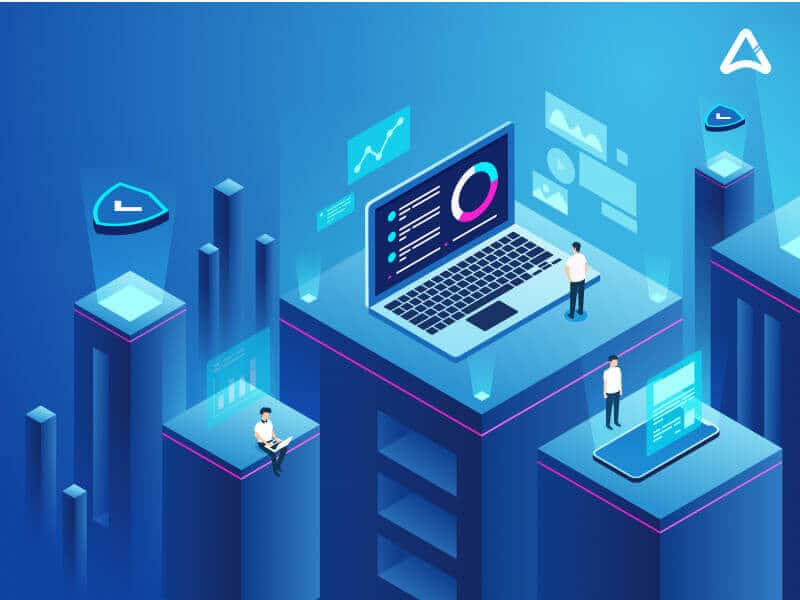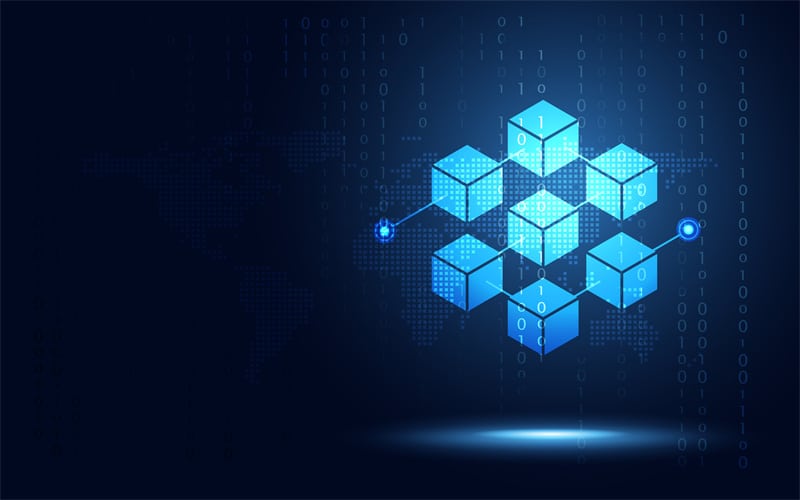
Newbie in blockchain coding? Check out this guide. It covers everything you need to know – skills, software, hardware, and platforms.
Blockchain technology holds immense potential for enhancing the lives of individuals across the globe in various ways. As a developer, you might have contemplated the exponential growth of this sector and its encompassing technologies.
The truth is, as the domains of blockchain, cryptocurrencies, and web3 continue to expand, the demand for new computer scientists and technical professionals will soar. Moreover, with this rapid expansion, it becomes apparent that abundant opportunities and promising financial prospects await in this field.
Read on if you want to start blockchain development or consider free online certifications.
Overview of Blockchain Coding

Blockchain coding involves the creation of smart contracts that execute precisely as programmed, eliminating any potential for fraudulent activities. Blockchain coding primarily revolves around the following:
- Designing the peer-to-peer technology and processes of the blockchain
- Developing applications that utilize blockchain technology.
As a blockchain developer, you can take on either of these two prominent roles:
- Core Developer: These developers work directly on the blockchain, focusing on its core functionalities and infrastructure.
- Blockchain Software Developer: These developers specialize in designing smart contracts and building decentralized applications (dApps).
A skilled blockchain coder can work in diverse industries including real estate, retail, healthcare, tourism, media, cyber security, manufacturing, and even the government.
What Do You Need to Start Blockchain Coding?
As a beginner, you must assemble your software and hardware to begin programming.
Software
First, you need an Integrated Development Environment (IDE). IDEs like Truffle, Hardhat, and Remix are widely used for compiling, testing, and running blockchain software.
You also require a Front-End environment, such as Node.js, and an API, such as blockchain.com's developer API, to explore blockchain data and transactions.
Hardware
You may run a node for your first operations using your personal computer. But you can only use this for a short time. Getting a dedicated PC for node operations to improve performance and security and shed additional burden off your primary computer is better.
Blockchain coding requires substantial hard disk space because the network has a considerable back-and-forth communication process. Therefore, ensure you purchase an SSD with ample storage space, especially if you plan to work on the Ethereum network.
Relevant Blockchain Coding Skills to Have
Some critical skills you need to learn to become a highly-rated blockchain programmer include:
Mastery of Fundamental Cryptography Concepts
As a blockchain programmer, it is crucial to become familiar with basic cryptography concepts like:
- Hashing Functions: for data integrity and security within blockchain systems
- Encryption: for securing transactions and communications within blockchain networks
- Public & Private Keys: for secure data transmission, authentication, and digital signatures within blockchain transactions
- Signing:for verifying the authenticity and integrity of data within blockchain networks.
Knowledge of Popular Blockchain Network
Get acquainted with well-known blockchain platforms and their functionalities, including:
- Ethereum
- Bitcoin
- Solana
Understanding each blockchain platform's unique features and capabilities will prepare you to undertake projects that run on them.
Proficiency in One or More Relevant Blockchain Coding Languages
Learn coding skills in languages used in smart contracts, web development, and Web3. Consider the following coding languages:
- C++: If you intend to work specifically on the Bitcoin blockchain, learning C++ is advisable since it was the language used by Bitcoin's founders to create its original blockchain.
- JavaScript/node.JS: Familiarize yourself with Web3.js, a JavaScript library that enables web applications to interact with blockchain nodes.
- GO & Python: These languages are commonly used for Web3 applications and are valuable additions to your skill set.
- Solidity: Mastering Solidity allows you to program smart contracts on various blockchain platforms. It is an essential and relatively easy language to grasp.
- HTML & CSS: If you aspire to be a front-end developer for decentralized applications, you need HTML and CSS to design user interfaces.
Understanding of Databases, Data Structures, and Networking Concepts
Ensure you learn and gain proficiency in flat and relational databases, LAN/WAN, switches and routers, stacks, linked lists, and queues. All these are necessary to show you how to store, organize, retrieve, and manipulate data within a blockchain system. These foundational topics will be instrumental in your work with blockchain technology.
Roadmap to Becoming an Expert Blockchain Coder

Here's a brief roadmap with steps on how to become the best at blockchain coding:
- Start learning the basics of your preferred blockchain language
- Familiarize yourself with blockchain technology and get conversant with blockchain terminologies
- Engage in blockchain coding tutorials and higher-level courses on professional blockchain development
- Monitor your efforts by running your node
- Learn about consensus algorithms
- Familiarize yourself with forking existing blockchains and wallets
- Run a practical: Fork a wallet and change its consensus algorithm
- Put your fork online using a test net
- Create a simple, smart contract and put it online
- Develop a dApp and host it on a platform.
As you start with blockchain coding, endeavor to engage with a community of like minds. Doing this will accelerate your learning process, help you forge valuable connections, and establish your presence as a skilled blockchain professional. The best platforms to fit into an active community of blockchain programmers include Reddit, GitHub, and StackExchange.










